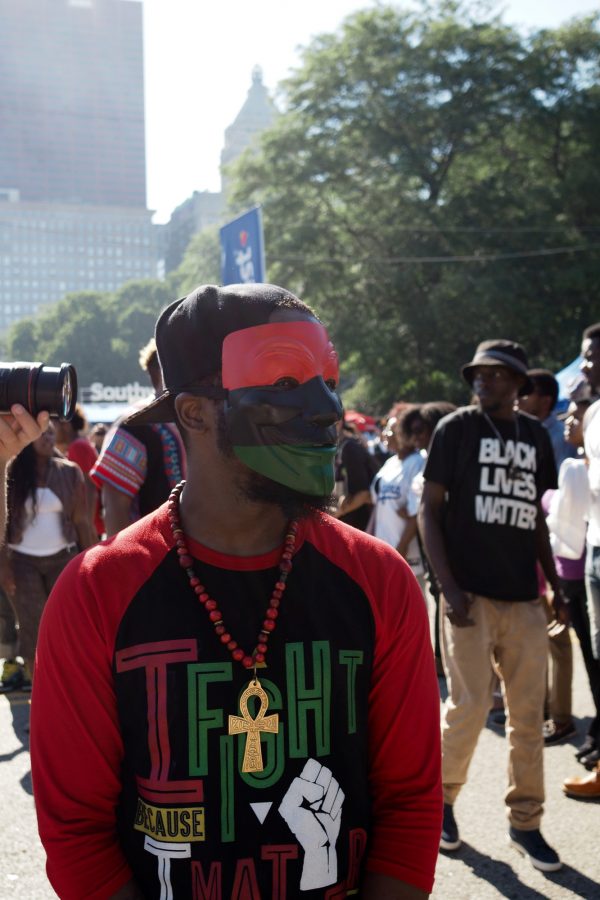Panel discusses the history of black lives at the University
Protestors occupy Taste of Chicago 2016; the Black Lives Matter movement has rapidly proliferated and permeated various facets of society with UIUC being no exception.
October 17, 2016
With over 20 African- American student organizations on campus, the conversation regarding black lives is ongoing here.
To continue the campus wide conversation, the Women and Gender in Global Perspectives hosted the “Cross Border Conversations on Black Lives” in the Illini Union on Friday.
“(It gave) historical content for students, who now proclaim that Black Lives Matter is one that includes exclusion, segregation, and low enrollment of African American students, (and) low numbers of African- American staff,” said Assata Zerai, the vice chancellor for diversity, who opened the discussion by providing statistics and information on the campus and its connection to the Black Lives Matter movement.
The University, which started off with a goal of enrolling 500 African- American students, is now part of the movement.
“Given what is happening in the U.S., and not just the U.S., but globally, it’s about having an interdisciplinary conversation around black lives,” said Karen Flynn, who sits on the board of WGGP and helped plan the event for the Cross Border Conversations.
Get The Daily Illini in your inbox!
The conversation was led and approached through many different points of view so that the panel could connect throughout every aspect. It featured four main speakers. Pascale Diverlus, the co-founder of Toronto’s Black Lives Matter movement, was the first speaker to spark energy in the room.
“These conversations are necessary, but I think we should complicate it more,” said Diverlus, a well-known activist, who takes Black Lives Matter personally. “Think of the names we don’t know, the names we’ll never know.”
Another featured speaker included journalist Evan Moore, who spoke about the media’s portrayal of black lives.
Moore, who grew up on the south side of Chicago, focused his discussion on his hometown’s movement, emphasizing that Black Lives Matter is not just about protesting but also about uplifting the community.
“In one incident, there was a group of students and the media portrayed them as (Black Lives Matter) protesters. They aren’t protesters, they were just students,” Moore said, who has been on both sides of the movement; reporting on it and witnessing it two blocks from where he grew up. “People don’t see the difference between a hashtag, the group and the actual movement.”
Tommy Curry, a professor at Texas A&M University, spoke on the connection and importance of the struggles of a black man.
“American society is generally dangerous for black men,” he said.
Curry offered a history lesson on what it actually means to be a black man in a country with white supremacists.
“My research revolves around the raping of black men,” he said.
Curry gave gruesome accounts of men being castrated, beaten and raped with objects throughout jails and “stop and frisk” stops.
The violence and hate crimes against black men in previous decades brought a couple of crowd members to tears. Curry enforced the idea that most black men’s sexual assaults are overlooked, simply because of their sex.
Malaika McKee, a visiting University professor, brought her own ideas of how students can get involved.
McKee hopes to increase the number of African Americans who travel abroad. She brought ideas of programs to expand the horizons of students without the proper fundings to travel abroad.
There was more than one goal in this discussion, but it revolved around one central idea: educating students.
Flynn said that she was shocked at the misunderstanding that happens in America when it comes to black lives. She hopes for students to realize it’s a bigger issue than the United States.
“I am never just a black person. The violence in America isn’t new, it’s just the cameras,” Diverlus said.







